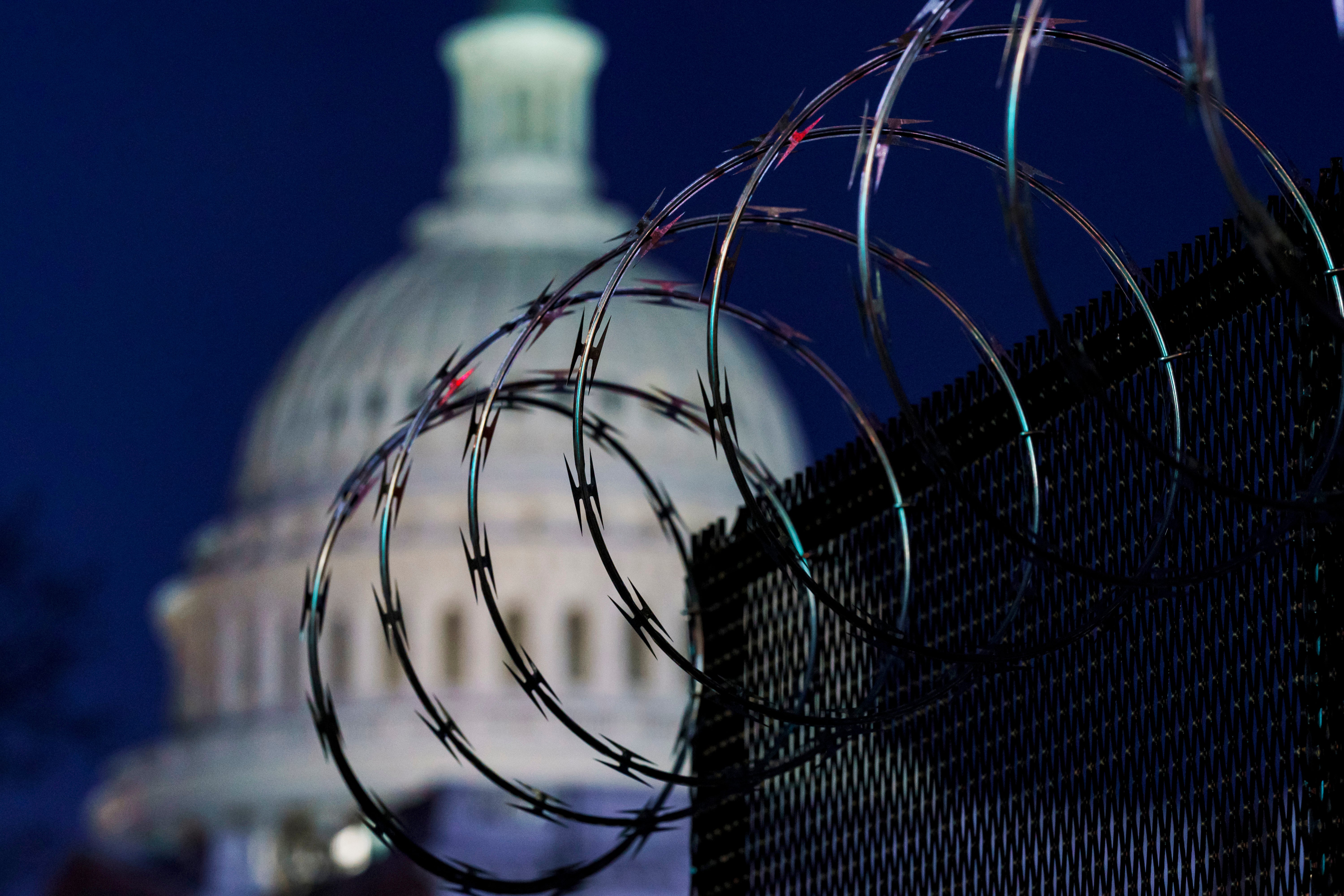Capitol Building fence is blocking DC laws from approval
That foreboding black fence erected around the U.S. Capitol building has had an unintentional side effect: walling off the local government’s ability to enact new laws

Your support helps us to tell the story
From reproductive rights to climate change to Big Tech, The Independent is on the ground when the story is developing. Whether it's investigating the financials of Elon Musk's pro-Trump PAC or producing our latest documentary, 'The A Word', which shines a light on the American women fighting for reproductive rights, we know how important it is to parse out the facts from the messaging.
At such a critical moment in US history, we need reporters on the ground. Your donation allows us to keep sending journalists to speak to both sides of the story.
The Independent is trusted by Americans across the entire political spectrum. And unlike many other quality news outlets, we choose not to lock Americans out of our reporting and analysis with paywalls. We believe quality journalism should be available to everyone, paid for by those who can afford it.
Your support makes all the difference.That foreboding black fence erected around the U.S. Capitol building has had an unintentional side effect: walling off the local government’s ability to enact new laws.
Washington D.C. city officials say dozens of new local laws have been bottlenecked because of the complete lockdown of the Capitol building following the violent Jan. 6 attack by supporters of former President Donald Trump Under terms of Washington D.C.’s tortured relationship with the federal government, physical paper copies of all new laws must be hand-delivered to Senate and House leadership. They cannot be mailed or e-mailed.
“We are unable to get through the fences. We are trying to find a way to deliver the legislation,” D.C. Council Chairman Phil Mendelson said Monday. “Sooner or later, there's going to be a gate that opens.”
The problem appeared to have been solved by Monday afternoon, but the episode shines a light on the larger overall problem: the fact that D.C. isn’t a state and needs to run its local laws past Congress in the first place.
Mendelson said “about 60” pieces of legislation have been held up so far. “It is an irrational and unsustainable situation that we cannot pass permanent legislation that can become permanent law,” he said. “It just shouldn’t be this way.”
If Congress takes no action within 30 days (60 days for bills that alter the city’s criminal code) then the bill automatically becomes a law. Only three D.C. bills have been directly overturned since 1975, but members of Congress do sometimes seek to alter or influence D.C. laws by attaching budget riders to certain bills.
Nyasha Smith, the secretary of the D.C. Council, has documented the difficulties on her office's official blog. Smith writes that the fence is just the latest in a string of recent difficulties surrounding the obscure ritual known as “congressional transmittal.”
When the COVID-19 pandemic shut down the Capitol to outsiders, D.C. Council staffers were able to connect with a House of Representatives contact and a similar contact in the office of former Vice-President Mike Pence who presided over the Senate in his role as VP.
For much of 2020, Smith wrote that D.C. city staffers would meet these contacts “outside the Capitol on the grounds of the Congressional campus to deliver our legislation.”
That arrangement changed in November after Trump began disputing his election loss — charging, without proof, widespread election fraud.
“Given the contentious and un-collaborative transition of power between the outgoing and incoming administrations, it was impossible to get a contact in the VP’s office toward the end of 2020,” Smith wrote last week. “Then January 6th unfolded. It has since been impossible to get any where(sic) near Congress.”
In her most recent update, Smith wrote that her staff had made positive contact with new Vice-President Kamala Harris' office and hoped to complete the document transfer on Monday.
As of Monday afternoon, calls to Smith's office were not immediately returned and it was unclear whether the “congressional transmittal” had successfully taken place.